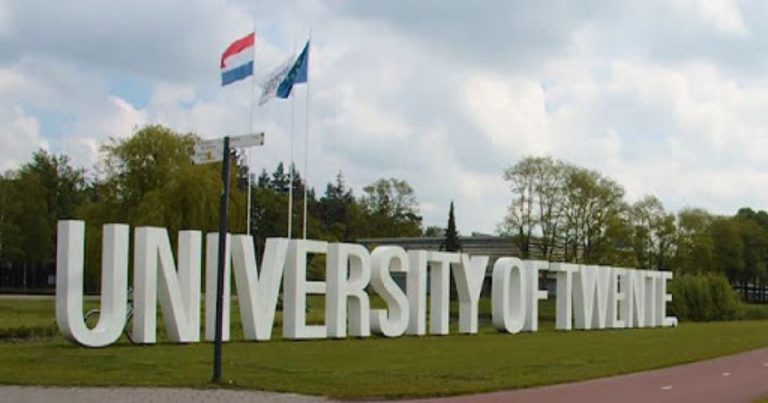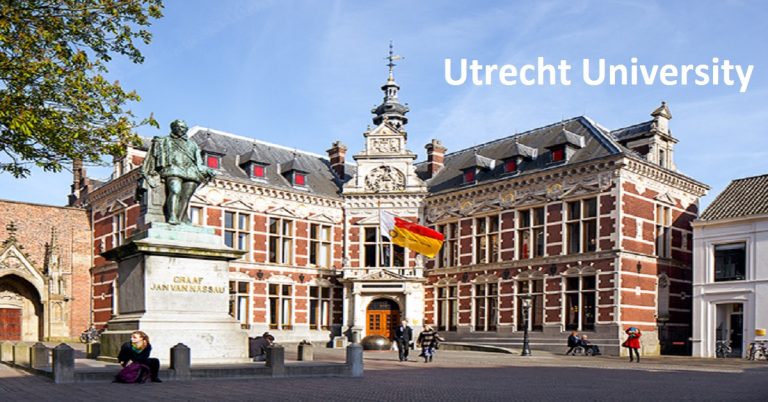We are looking for a motivated PhD candidate to join our multidisciplinary research on trophic rewilding in salt marshes, with a focus on understanding its impact on ecosystem functioning and resilience against climate change. If you are driven by a desire to make a difference in the fight against biodiversity loss and climate change, this position is for you!
Key responsibilities:
- Investigate how trophic rewilding influences ecosystem functioning and resilience to climate-change-induced sea level rise, storminess, and heatwaves; This includes ecological fieldwork across a climate gradient.
- Conduct field surveys, mesocosm experiments, and ecological field experiments, including herbivore tracking and remote sensing data analysis. Integrate empirical data into conceptual models;
- Publish research findings in peer-reviewed journals and present them at national and international conferences.
- Contribute to a vibrant and inclusive research culture within the research group;
- Mentor BSc/MSc students.
You will work here
This multidisciplinary research is part of the broader WildMarsh Project, funded by the Netherlands Organization for Scientific Research (NWO), and involves a collaboration between Wageningen University with the Royal Netherlands Institute for Sea Research (NIOZ).
You will be part of the Aquatic Ecology and Water Quality Management Chair Group, as a member of the Marine Ecology team led by Associate Professor and project leader Marjolijn Christianen. You will also engage with the Department of Estuarine and Delta Systems at the NIOZ in Yerseke, within the Coastal Resilience Lab led by Jim van Belzen, who will be co-supervisor and co-PI of this project. You will closely collaborate with the NIOZ PhD candidate, focusing on complementary modeling and spatial data-analysis aspects of the project. This other position is advertised through the NIOZ website.
Your base will be at Wageningen University, with fieldwork in Zeeland and across the European coastline. Regular in-person team meetings will take place in Wageningen and Yerseke (Zeeland).
About the WildMarsh project
With 38% of global salt marshes lost or severely degraded, their critical role in coastal protection and carbon sequestration is under threat. Trophic rewilding, a restoration approach involving the reintroduction or management of large animals, is gaining attention and shows promise in reversing biodiversity decline and enhancing coastal climate resilience. However, the mechanisms and impacts of trophic rewilding, especially under climate change scenarios, remain unclear due to limited studies.
The WildMarsh Project aims to establish a scientific foundation for trophic rewilding in temperate salt marshes, helping these ecosystems recover and adapt to climate change. Through a multidisciplinary approach, the project will assess the impacts of reintroducing large animals on biodiversity and coastal resilience (e.g., field surveys, mesocosm and field experiments, telemetry, modeling), develop innovative restoration tools and maps, and engage the public in conservation efforts through collaboration with artists and citizen scientists.
Your qualities
You are / You have:
- a Master’s degree in ecology, environmental sciences, biology or a related field with demonstrated experience in ecological field experiments and quantitative data analysis;
- strong interest in coastal ecology, trophic rewilding, multidisciplinary research, including public engagement (e.g, science communication, art, joint monitoring);
- fluent English communication skills, both written and spoken, with a proven track academic track record (e.g., thesis). A good communicator with interest in public engagement (e.g, science communication, art, joint monitoring);
- experience with telemetry and remote sensing is advantageous;
- a driving licence.
Essential qualities include the ability to work well in a group, strong motivation to obtain a PhD degree, creativity, flexibility, initiative, problem-solving skills, independence, critical thinking, and a willingness to travel for fieldwork and collaboration across various locations.
If you do not speak Dutch yet, we expect you to be willing to invest in learning the language, and will support you through our Wageningen In’to Languages language institute.
Proficiency in English at a C1 level is required; in some cases, you may need to submit an internationally recognized Certificate of Proficiency in the English Language. More information can be found here
We offer you
Wageningen University & Research offers excellent terms of employment. A few highlights from our Collective Labour Agreement include:
- partially paid parental leave;
- working hours that can be discussed and arranged so that they allow for the best possible work-life balance;
- the option to accrue additional compensation / holiday hours by working more, up to 40 hours per week;
- there is a strong focus on vitality and you can make use of the sports facilities available on campus for a small fee;
- a fixed December bonus of 8.3%;
- excellent pension scheme.
In addition to these first-rate employee benefits, you will receive a fully funded PhD position and you will be offered a course program tailored to your needs and the research team.
The gross salary for the first year is € 2.872 – per month rising to € 3.670,- in the fourth year in according to the Collective Labour Agreements for Dutch Universities (CAO-NU) (scale P). This is based on a full-time working week of 38 hours. We offer a temporary contract for 18 months which will be extended for the duration of the project if you perform well.
There are plenty of options for personal initiative in a learning environment, and we provide excellent training opportunities. We are offering a unique position in an international environment with a pleasant and open working atmosphere.
You are going to work at the greenest and most innovative campus in The Netherlands, and at a university that has been chosen as the “Best University” in the Netherlands for the 19th consecutive time.
Coming from abroad
Wageningen University & Research is the university and research centre for life sciences. The themes we deal with are relevant to everyone around the world and Wageningen, therefore, has a large international community and a lot to offer to international employees.
Because we expect you to work and live in the Netherlands our team of advisors on Dutch immigration procedures will help you with the visa application procedures for yourself and, if applicable, for your family.
Feeling welcome also has everything to do with being well informed. We can assist you with any additional advice and information about for example helping your partner to find a job, housing, or schooling. Finally, certain categories of international staff may be eligible for a tax exemption on a part of their salary during the first five years in the Netherlands.
Do you want more information?
Do you want more information?
For more information about this position, please contact Marjolijn Christianen, Associate Professor Marine Ecology, marjolijn.christianen@wur.nl
For more information about the procedure, please contact Noorien Abbas, corporate recruiter , noorien.abbas@wur.nl
Do you want to apply?
You can apply directly using the apply button on the vacancy page on our website which will allow us to process your personal information with your approval.
This vacancy will be listed up to and including Sunday 29 September 2024. The first job interviews are expected to take place 16 October 2024. This 4-year PhD position is starting no later than 1 February 2025.
Additional information form
For this position, you must fill in a mandatory form which will allow us to have a comprehensive view of your qualifications and better assess your fit for it. You can access the form using the link below:
https://forms.office.com/e/hEuiTRCbBN
Your prompt response will ensure that your application continues to move forward in the evaluation process. We assure you that the information provided will be kept confidential and used solely for this application process.
Equal opportunities
Wageningen University & Research (WUR) employs a large number of people with very different backgrounds and qualities, who inspire and motivate each other. We want every talent to feel at home in our organisation and be offered the same career opportunities. We therefore especially welcome applications from people who are underrepresented at WUR. A good example of how WUR deals with inclusiveness can be read on the page Inclusion.
We are
The mission of Wageningen University & Research is “To explore the potential of nature to improve the quality of life”. Under the banner Wageningen University & Research, Wageningen University and the specialised research institutes of the Wageningen Research Foundation have joined forces in contributing to finding solutions to important questions in the domain of healthy food and living environment. With its roughly 30 branches, 7,600 employees (6,700 fte) and 13,100 students and over 150,000 participants to WUR’s Life Long Learning, Wageningen University & Research is one of the leading organisations in its domain. The unique Wageningen approach lies in its integrated approach to issues and the collaboration between different disciplines.
Read the 5 reasons why your future colleagues enjoy working at WUR and watch the video below to get an idea of our green campus!
We will recruit for the vacancy ourselves, so no employment agencies please. However, sharing in your network is appreciated.

